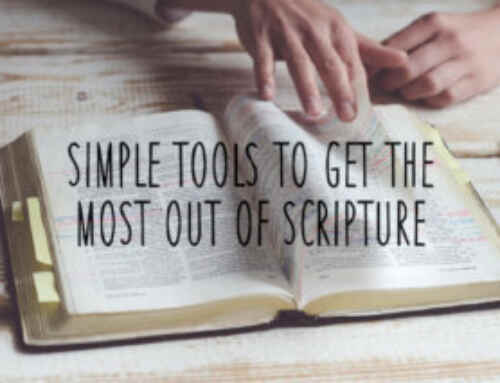Why should we study Scripture and what is the best mindset when approaching The Bible? Most of us start out of a sense of obligation. This is a valuable starting place, but unchecked it can lead to guilt, fear and shame. When studying The Bible becomes an adventure, we start to seek its truth as a treasure-hunter. There are difficulties and challenges along the way, but unraveling the love story of Scripture is an incredible journey.
Transcription:
Why should we study the Bible?
Many of us start with a sense of obligation and guilt. We feel we are “supposed to” read the Bible every day because it is the thing Christians do. It is beneficial, but not as transformative as other approaches.
Why do we feel obligated? It is rooted in the universal confusion about acceptance and approval. Acceptance is essential; we can’t live without it. Unconditional acceptance is a driver in every human life. But most of us grow up with conditional acceptance: if you do this, you will be accepted. God offers to accept us as his children. You can do anything you want to and still be in the family. Yet, our choices still matter; our father is a parent who will discipline us for our own good. He will offer his approval or disapproval. But neither changes our status as accepted.
We often approach The Bible under the cloud of a fear of rejection. How can I keep from getting rejected so I might be accepted? This leads to guilt associated with doing wrong. It also leads to performance: we go to the Bible out of obligation to impress others in our community. Feeling shamed, rejected, etc. A need to perform for acceptance. But we also realize we can’t figure it all out, sending us into a shame spiral. This becomes a veil that robs us from seeing Scripture for what it is worth.
A sense of obligation is a good place to start but can become an obstacle if we don’t move into exploration/adventure. Every human will always act in the way we perceive to be in our own self-interest. How do we perceive our best self-interest?
This is how we all start. Like children who don’t know they exist but grow into an awareness of ourselves and then the awareness of others. This guilt approach is not best. If we can move to a new perspective, we are on better footing. Not “I have to”, but “I want to”.
The flesh and the spirit are two entities both trying to convince us what is in our best interest, competing for our perception. The world’s turf is conditional acceptance and everything about it operates this way. We kind of like it because it gives us a greater sense of control, although that is false. The “feeling” of control is an illusion, but it still feels good. We see it is an illusion, the evidence is all around us, but the feeling is so good we still chase it.
Core discovery – we can move from obligation to adventure by looking at Scripture as a story. No longer a checklist, but the discovery of a story. It is still tough, still requires discipline – which is different than guilt. Why did Paul write this letter? What would the people who received it have felt? It is like unraveling a puzzle. The Bible is a story. Human history is a story. The YB podcast is all about trying to share what we have discovered while unraveling the story.
The story of Scripture shows God’s unconditional acceptance AND his loving approval/disapproval as two distinct things. Most of the time He gives Biblical characters what they want faster so they experience negative consequences and see they have put their hope in the flesh, giving them time to turn and make a better choice.
Adding to the difficulty is the fact Scripture is written in a completely different context; requires a bit of work to bring it into focus and align all the narratives in order to discover the truth. It can be transformational to look at the context, discover the story for what it is, building a bridge between what I don’t understand and what it is trying to say. Words without the context are still life giving, but the words with the context are more life giving.
The Yellow Balloons podcast is not trying to replace the joy of self-discovery, but help people get to the context quicker and free them to adopt practices, knowledge, and perception that help The Story come to life.
***All study resources mentioned within the series can be found here.
